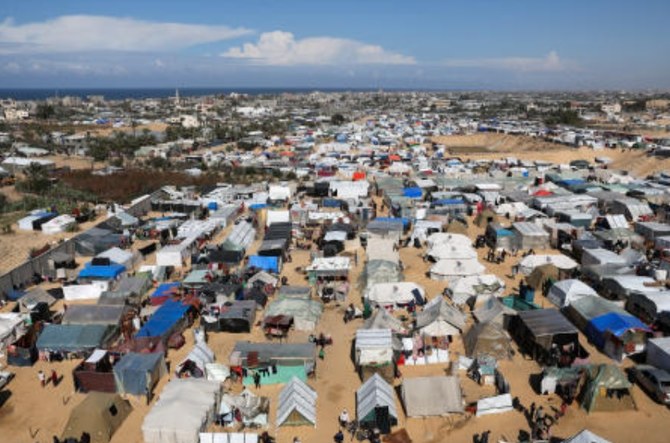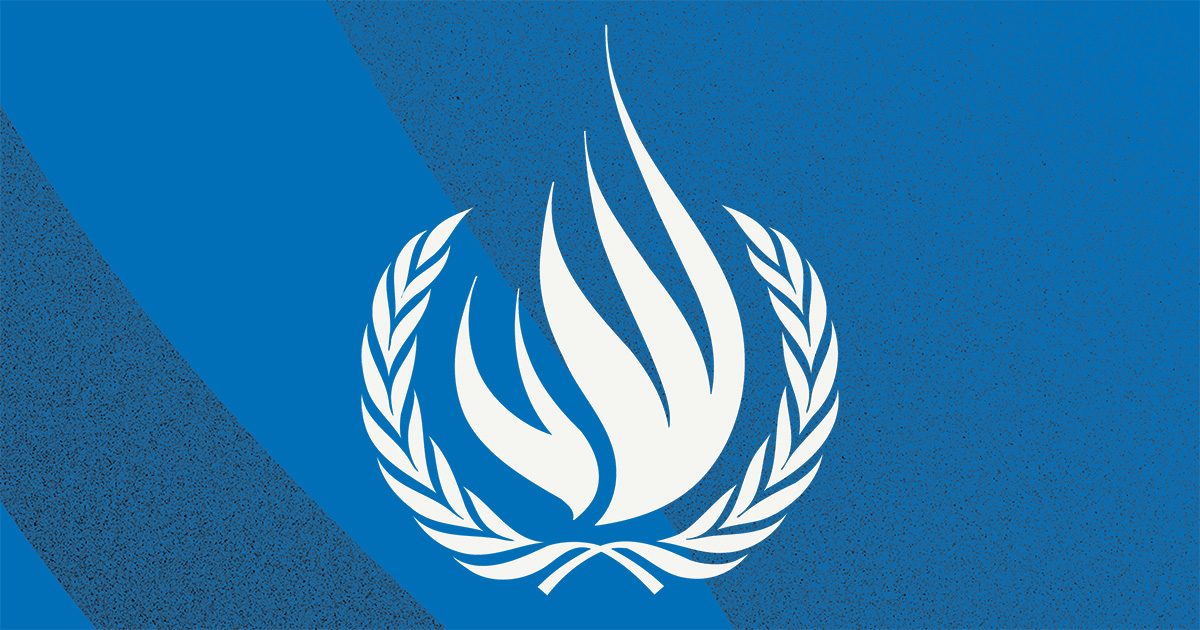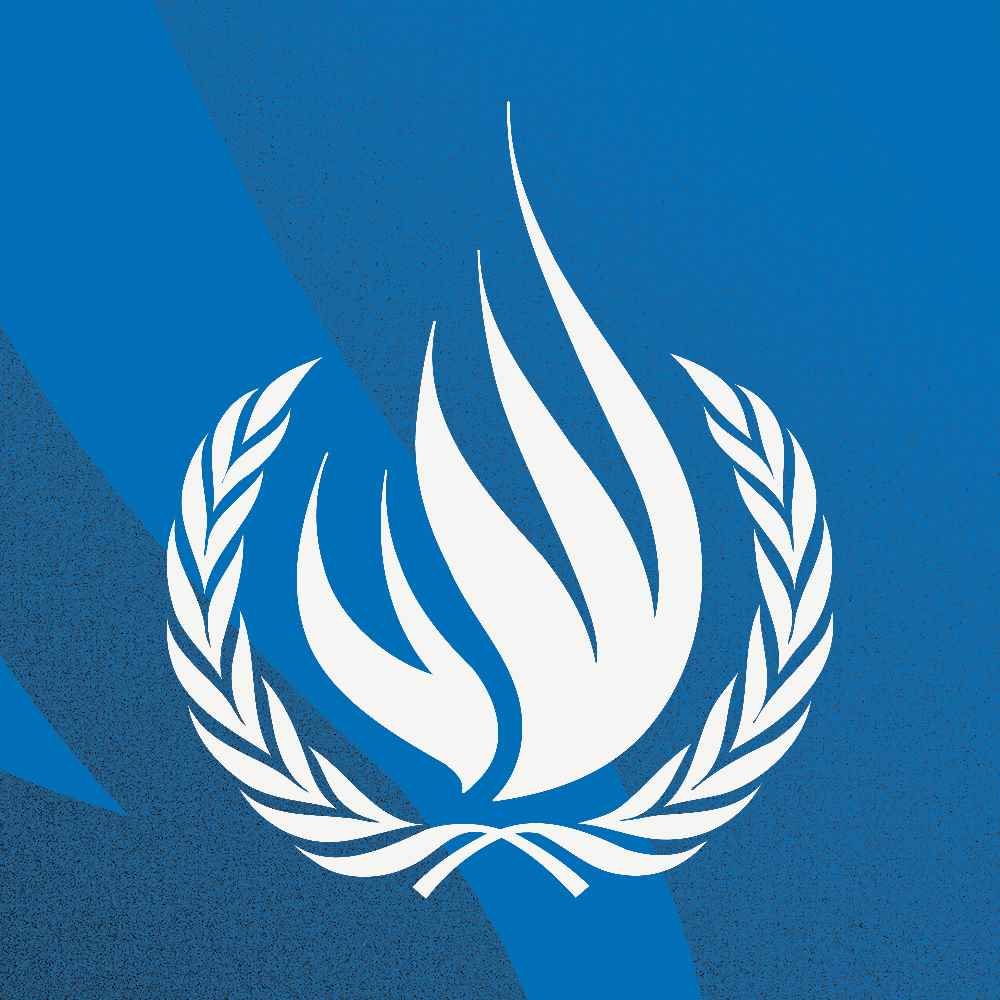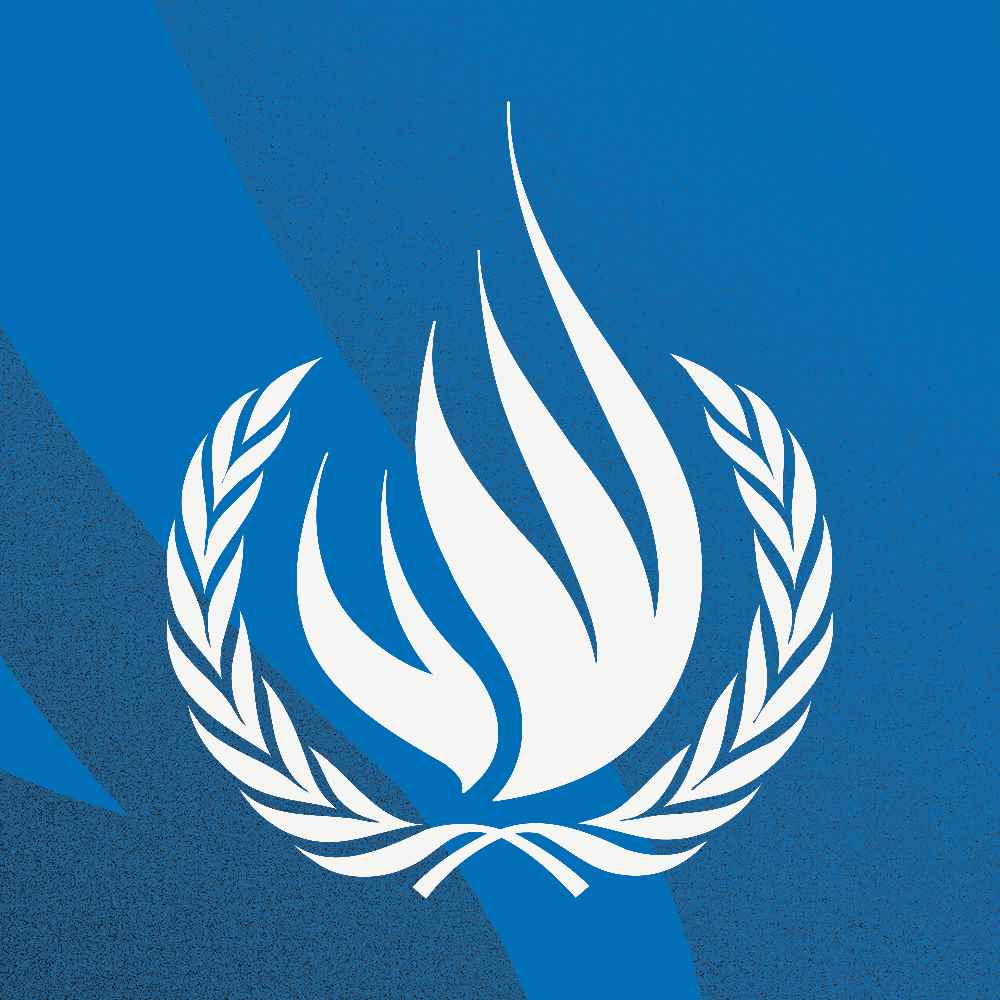
Ending the apartheid inflicted on Palestinians is only way to achieve lasting peace, security and regional stability, says special rapporteur Francesca Albanese
Israel has prevented special rapporteurs appointed by UN Human Rights Council to focus on Palestinian human rights issues from entering the country since since 2008
NEW YORK CITY: A UN human rights expert on Thursday described Israel’s ban preventing her from entering the country as “a distraction from atrocities being committed in Gaza.”
Francesca Albanese, the UN’s special rapporteur on the situation of human rights in the Palestinian territories occupied since 1967, said the ban must not be allowed to divert attention from the current situation in the territory, where about 30,000 Palestinians have been killed during five months of relentless Israeli bombardment.
Albanese was already banned from entering Israel in the same way all her predecessors in the UN role have been since 2008. However, Israeli authorities explicitly stated this week that her ban is now official, in what some observers viewed as an escalation of Israel’s campaign against elements within the UN it alleges are sympathetic to Hamas.
It is happening as Rafah, which is Gaza’s southernmost city and has become the last refuge for more than a million Palestinians displaced from other parts of the territory, has come under heavy fire from Israeli airstrikes in recent days. At least 95 people have been killed there, including 42 children, according to Amnesty International.
On Thursday, Israel raided Nasser hospital in Khan Younis, also in southern Gaza, which is the largest still-functioning hospital in the territory. They alleged that Hamas militants were hiding in the facility and holding hostages, and the bodies of hostages, there. Hamas dismissed the allegation as “lies.”
The raid forced displaced people and the families of medical staff who were sheltering in the hospital to flee, with more than 2,000 arriving in Rafah overnight and others pushing north toward central Gaza.
Albanese, an Italian lawyer, described the “official ban” on entering Israel as “symbolic and misleading,” noting that in 2008 Israeli authorities detained and deported her predecessor, Richard Falk, and since then all of those appointed to the role have been denied permission to enter the country.
“Israel’s announcement must not serve as a diversion from the situation in Gaza, (where) in just over four months the Israeli army has killed over 28,500 Palestinians in Gaza, 70 percent of them women and children, while some 10,000 people are missing, presumed dead under the rubble,” she said.
“Nearly 70,000 are injured, many maimed for life, and some 1.7 million people — 75 percent of the population — have been displaced, while the entire civilian population is at risk of starvation.
“Daily, relentless massacres, the latest ones inflicted in the nonexistent ‘safe zones’ in Rafah, where over 1.4 million Palestinians are struggling to survive, are being committed in flagrant defiance of the provisional measures ordered by the International Court of Justice.”
In a ruling last month, the ICJ ordered six provisional measures, including obligations on Israeli authorities to refrain from actions contrary to the Genocide Convention, to prevent and punish direct and public incitement to genocide, and to take immediate action to ensure that humanitarian assistance reaches civilians in Gaza.
The official ban on Albanese was imposed in response to comments she made on Feb. 10 that Israel alleges amounted to justification of the Hamas massacre on Oct. 7.
Her comments came after French President Emmanuel Macron described the events of Oct. 7 as “the greatest antisemitic massacre of our century.”
In a message posted on social networking platform X, she wrote: “The ‘greatest antisemitic massacre of our century?’ No, (Mr. Macron), the victims of 7/10 were not killed because of their Judaism, but in response to Israel’s oppression. France and the international community did nothing to prevent it. My respects to the victims.”
In response, Israeli Foreign Minister Israel Katz called on UN Secretary-General Antonio Guterres to fire Albanese.
“If the UN wants to return to being a relevant body, its leaders must publicly disavow the antisemitic words of the ‘special envoy,’” he said.
Albanese said: “Israel claims that the ban follows my comments concerning the context in which Hamas’ attacks on Oct. 7 took place.
“I have strongly and consistently condemned these heinous attacks as war crimes which cannot be justified in any way, and for the fear and distress they have spread among Israelis. I continue to express my sorrow and solidarity with the victims, including the hostages still held captive, and with Jewish communities worldwide. I also call for accountability for these crimes.
“While my condemnation of the attacks is unequivocal, I also felt compelled to challenge a persistent misinterpretation of the root causes of the Oct. 7 attacks, particularly in Western countries: that the attacks were primarily motivated by antisemitism. As prominent Holocaust and antisemitism scholars have warned, this assumption is both false and dangerous as it evades the critical underpinnings of the conflict and disavows the role of Israel in fueling it.
“These scholars have recently argued that ‘appealing to the memory of the Holocaust obscures our understanding of the antisemitism Jews face today, and dangerously misrepresents the causes of violence in Israel-Palestine.’ So, while antisemitism could have played a role in the attacks at an individual level for some, their main determinants are to be found elsewhere.”
Albanese added that in keeping with her UN mandate she tried to establish formal relations with Israel that would enable her to fulfill her role but Israel responded with “hostility and slander that is often amplified by politically aligned organizations and media.”
She accused the Israeli government of consistently undermining those who promote the rule of law and defenders of human rights, including the UN secretary-general, the Human Rights Council, the UN Relief and Works Agency for Palestine Refugees in the near East, the UN Office for the Coordination of Humanitarian Affairs, and the International Court of Justice.
“Although a long and challenging endeavor, respecting international law and ending the system of apartheid that Israel imposes on the Palestinians is the only way to achieve lasting peace, human security and regional stability — for no one can be safe until everyone is safe,” Albanese added.
Special rapporteurs are part of what is known as the special procedures of the UN Human Rights Council. They are independent experts who work on a voluntary basis, are not members of UN staff and are not paid for their work.












